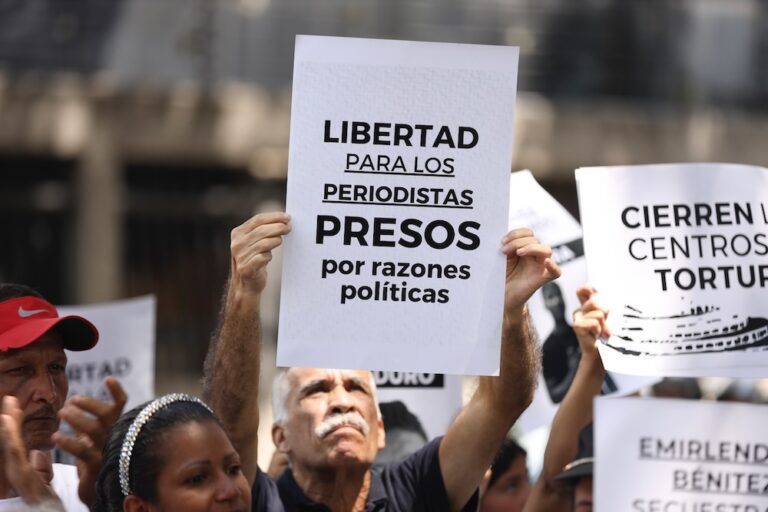(WAN/IFEX) – The following is a 4 June 2007 press release: Cape Town, South Africa, 4 June 2007 Lack of Press Freedom Inhibits African Development The absence of press freedom in many African nations is inhibiting development on the continent and depriving millions of Africans of their rights, the President of the World Association of […]
(WAN/IFEX) – The following is a 4 June 2007 press release:
Cape Town, South Africa, 4 June 2007
Lack of Press Freedom Inhibits African Development
The absence of press freedom in many African nations is inhibiting development on the continent and depriving millions of Africans of their rights, the President of the World Association of Newspapers said Monday.
“In dozens of African nations, political transformation has been deeply flawed, if not stillborn, because of the failure to secure one of the absolutely fundamental conditions for full, living democracy and pluralism I’m talking, of course, about freedom of the press, which continues to be violated on a daily basis across the length and breadth of this continent,” said Gavin O’Reilly at the opening of the 60th World Newspaper Congress and 14th World Editors Forum in Cape Town, South Africa.
“This freedom, whose defence and promotion was set by the founding fathers of WAN as our first and over-riding mission, is not only a human right to which every African man and woman is entitled, but a pre-condition for the establishment of good governance and durable economic, political, social and cultural development,” he said. “It is also, I would contend, a powerful tool in the fight against corruption, famine, poverty, violent conflict, disease and lack of education – afflictions of which African peoples have much more than their fair share.”
Addressing more than 1,600 senior newspaper executives from 109 countries, in the presence of South African President Thabo Mbeki, officials of the African Union, foreign ambassadors and nearly 400 African newspaper professionals from 43 countries, Mr O’Reilly said: “The daily persecution and harassment of the free press must cease. But press freedom must also be much higher on the agenda of African development proposals and programmes.”
“This gives me the opportunity to pay homage to the men and women of the press in Africa and to express our deep admiration for their treasures of imagination, courage and resilience, that they demonstrate on a daily basis to bring out their publications, often under very difficult conditions, and so play their role in keeping democratic debate alive,” he said.
It is the first time that WAN has organised the annual meetings of the world’s press in Africa, though the organisation has held numerous other events on the continent. It marked the occasion with the Declaration of Table Mountain, which calls on African states to recognize the indivisibility of press freedom and to respect their commitments to international and African protocols upholding this freedom and independence.
Mr O’Reilly noted that the text calls for the elimination of criminal defamation and “insult” laws, which outlaw criticism of politicians and those in authority. He called the laws “the greatest durable scourge of press freedom in Africa.”
The full Declaration of Table Mountain can be read at http://www.wan-press.org/article14289.html
Mr O’Reilly’s speech can be found at http://wan-press.org/article14350.html
Mr Mbeki’s speech will be available on the government website at http://www.info.gov.za/speeches/index.htm
The 60th World Newspaper Congress, 14th World Editors Forum and Info Services Expo 2007, the global meetings of the world’s press, run through Wednesday, 6 June. Full details of the event, including summaries of presentations and other materials, can be found at http://www.capetown2007.co.za.
The Paris-based WAN, the global organisation for the newspaper industry, defends and promotes press freedom world-wide. It represents 18,000 newspapers; its membership includes 77 national newspaper associations, newspaper companies and individual newspaper executives in 102 countries, 12 news agencies and 10 regional and world-wide press groups.


